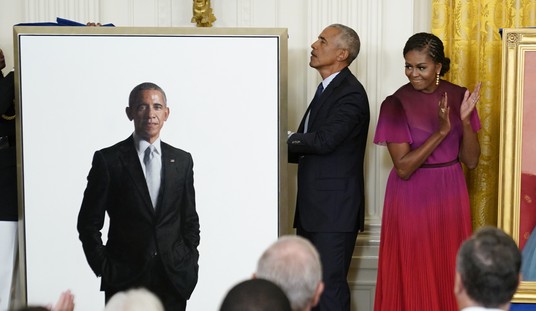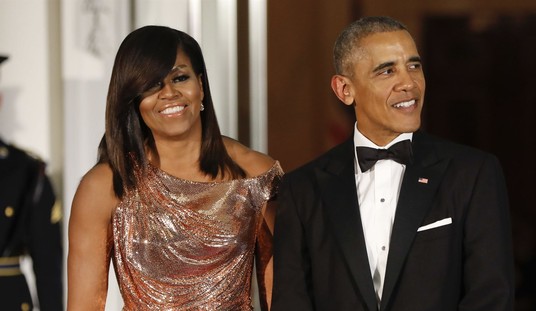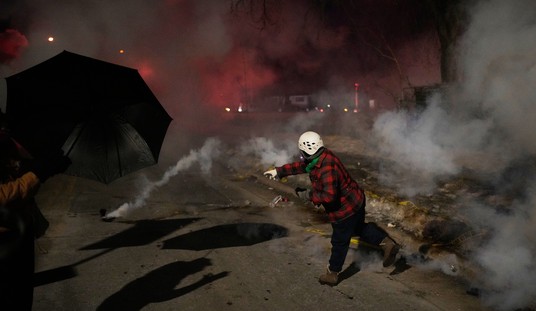This month marks the 20th anniversary of one of the last great culturally and musically dominant albums of the rock era — Achtung Baby by U2. The album introduced a wild new industrial wall of sound, rhythm, and psychedelic swirl to the world. It sat on top of the charts for months, won the Grammy for album of the year, and regularly appears on critics’ lists of the best albums of all time. It may be my generation’s Sgt. Pepper.
Not long after Achtung Baby dominated the airwaves, the radio and music industry changed forever. Market micro-segmentation and the diminished relevance of terrestrial radio meant that no single album would again capture the rock nation as did Achtung Baby, and Nirvana’s Nevermind did earlier that fall. Sure, musical acts still explode to riches and some fame, but culturally unifying musical dominance doesn’t occur the way it once did.
There are no more Michael Jacksons or The Beatles, or groups like U2. These days, it is difficult to name any single contemporary song that the vast majority of Americans are familiar with as they were with Bruce Springsteen’s “Born in the USA” in 1984 or U2’s “One” from Achtung Baby. Like our politics, our music has frayed apart.
“Well it’s too late, tonight
To drag the past out into the light
We’re one, but we’re not the same”
— “One,” Achtung Baby
The first time I heard “The Fly,” Achtung Baby’s first single, in November 1991, it was sonically radical. It was an unfamiliar but delightful experience, similar to what the first listen to “Love Me Do” by the Beatles in 1963 must have been. U2’s new radical sound was intentional. Faced with creative stagnation after Rattle and Hum in 1988, U2 sought to reinvent themselves. To record Achtung Baby they traveled to Berlin, a city that was undergoing its own reinvention in the fall of 1990.
Aided by Brian Eno, the aural master of little known but spectacular works like Here Come the Warm Jets, U2 set up in Berlin’s Hansa Studios. Eno and Bono sought to push the album toward an industrial, rhythmic, and distinctive continental European sound. Others in the band resisted the radical new direction, but eventually they hit upon genius. The post-punk guitar explosions, a giant dancehall bass, and drums thrust to the forefront created something never done before, and never done since.
Simply, Achtung Baby was one of those rare moments in the rock era like Pet Sounds by the Beach Boys or Rubber Soul by the Beatles. Achtung Baby sounded like nothing else.
“Time is a train — makes the future the past
Leaves you standing in the station
Your face pressed up against the glass”
— “Zoo Station,” Achtung Baby.
For lovers of deep tracks, the album even produced a fantastic array of B-side special releases including “Lady with the Spinning Head.” (Find it! It’s on the newly released two-disc deluxe version of Achtung Baby.) In all, five of the 12 songs hit the charts in the United States and the Zoo TV tour filled football stadiums around the world.
It was during this tour that I had an unforgettable moment. U2 was scheduled to play in Columbia, South Carolina, when I received a call from a friend: “U2 is flying into Eagle Aviation, want to go meet them at the plane?”
Right. I had my share of celebrity near-misses. When I worked at as a rock DJ before law school, I had one particular freak who would call the radio station claiming to be Max Weinberg’s (E Street Band) sister. She set up more than one scheduled trip by “Bruce Springsteen” to the radio station that resulted only in increasingly bizarre excuses. So I was skeptical.
We breezed through the lobby at Eagle Aviation, a small private general aviation portal at Columbia’s airport and went straight onto the tarmac. A wink from an employee friend gave us access. A black limo waited on the empty tarmac as a 727 with “MGM” painted on the side landed and taxied to us. We were the only two people on the tarmac apart from a man who pushed a stairway up to the jet’s door. Larry Mullen, Adam Clayton, then The Edge, and finally Bono emerged from the jet.
Since we were the only two people on the tarmac, they must have assumed we were there to officially greet and guide them, so they approached us, not the other way around. I greeted them with a Sharpie and CD cover to sign and disabused them of that assumption. They kindly signed our stuff and shook our hands before climbing into the limo. It was a story few would have believed except I still have the CDs and some photos of them deplaning before I ran out of film. It was unforgettable.
“We’re free to fly the crimson sky
The sun won’t melt our wings tonight”
— “Even Better Than the Real Thing,” Achtung Baby
Now, twenty years later after Achtung Baby’s release, even film is gone. Relevant terrestrial radio is gone. So are world-dominating acts like U2, except perhaps for U2. And along with it, we’ve lost yet another shared common American cultural experience.
Also read:










Join the conversation as a VIP Member